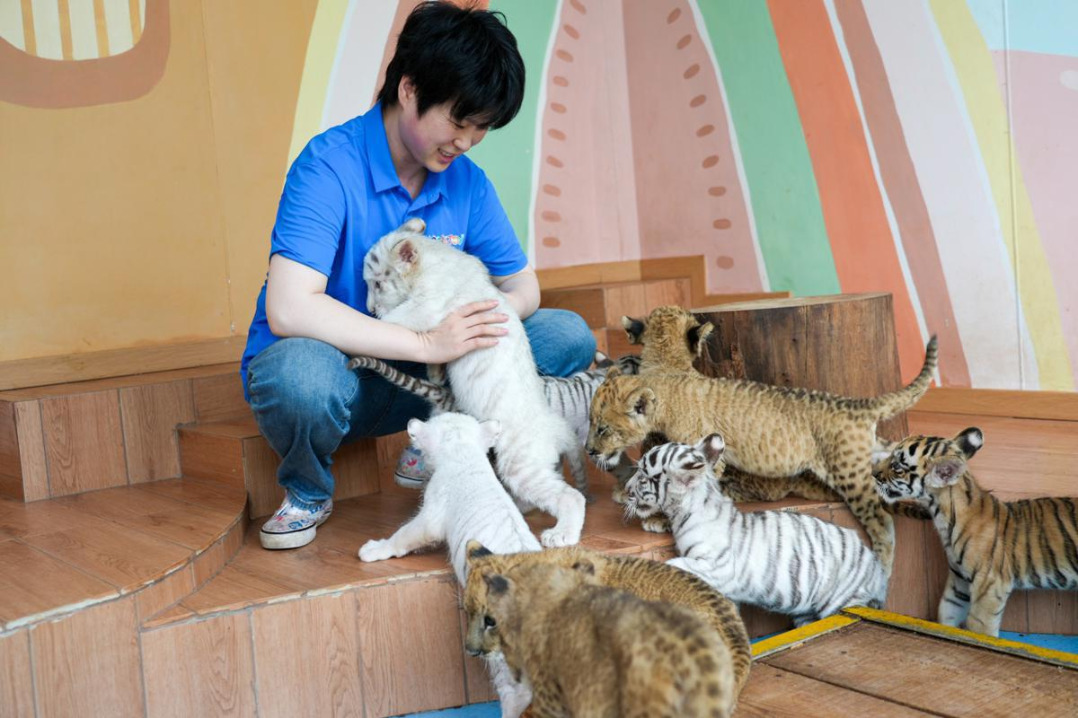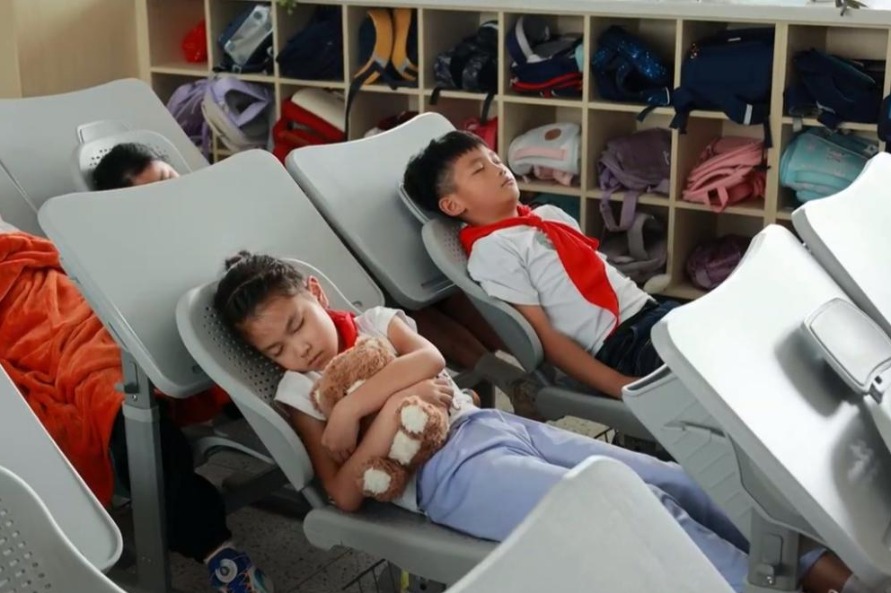A healthy respect for healthcare


Chen Shicong, a freshman at the School of Medicine at Wuhan University, said she drew strength from renowned respiratory expert Zhong Nanshan, who was awarded the Medal of the Republic, the country's highest honor, for the outstanding contributions he made to stemming the outbreak.
"Fighting the epidemic in his 80s demanded exceptional courage and determination. He led by example, showing that being a good doctor requires not only professional skills but also empathy and devotion. I deeply respect him," she said.
Chen said she found her classmates share similar goals.
"Going to a medical school reflects our desire to save lives and help others and thus achieve selfworth," she said.
"Many of us had moments of hesitation because of rigorous learning and training programs. But the selfless acts of medical workers across the country touched us and demonstrated the possibility of forming genuine connections between patients and doctors," she said.
Healthcare work is often associated with long hours and high pressure in China.
Wang Chen, president of Peking Union Medical College, said during an interview last year that even medical workers, whose children are more prone to major in medicine, do not want their children to be doctors.
The Chinese Medical Doctor Association said in a 2011 survey that over 78 percent of surveyed physicians were unwilling to send their children to medical schools.
World Bank data showed there were about 2.1 physicians per 1,000 people in the country, compared with the average of 3.1 in high-income countries.
"It is a worrying and unprecedented phenomenon that should raise concern. To brighten the career outlooks for doctors and improve relevant social environments must be stressed and acted upon," Wang said.
Cai Wentai, whose parents are both healthcare workers, is part of a growing force reversing the trend. He is now enrolled at the clinical medicine program at Huazhong University of Science and Technology's Tongji Medical College.
"I found the idea of becoming a doctor interesting from a very young age but felt conflicted because other subjects like mathematics and psychology also appeal to me," the 19-year-old said.
During the epidemic, Cai said he sensed a shortage of talent in the healthcare system and made up his mind to follow in his parents' footsteps. "Even though my power is limited, I am willing to contribute to the best of my capacity," he said.
His father, Cai Kailin, is the head of the gastrointestinal surgery department in Wuhan Union Hospital and worked in one of the temporary treatment centers in the city during the epidemic.
His mother, Xiong Lijuan, who specializes in controlling hospital-acquired infections, contracted the coronavirus in late January but returned to the front line upon recovery.
"I think stories of committed medical workers have spread more awareness about their hard work," Cai Wentai said. "My parents believe that the doctor-patient relationship has actually improved a lot in recent years. With proper communication and mutual understanding, it will not be a major concern."
Cai Kailin said: "As a doctor, I have witnessed life-or-death struggles and know the path to becoming a doctor is arduous. As a father, I hope my son will realize the value of life by answering the needs of the times."
The epidemic has exposed weaknesses in China's healthcare system and brought more attention to the development of medical capacity.
The country is also stepping up support for medical education.
Weng Tiehui, vice-minister of education, said during a news conference in late February that Chinese universities will expand admissions for graduate students pursuing master's degree this year, and clinical medicine and public health are among majors that will be taken into account when selecting students for the expanded enrollment.
On Sept 24, the General Office of the State Council also issued a guideline to accelerate the development of the country's medical education. The document calls for strong efforts to develop specialties in short supply, such as anesthesiology, infectious diseases, intensive care and pediatrics, as well as training more general practitioners and public health workers.
- Global Public Security Cooperation Forum to be held in Lianyungang
- Huangyan Island National Nature Reserve gets official go-ahead
- A capable assistant in classroom -- Chinese educators embrace AI
- China rolls out homegrown 9-valent HPV vaccine
- New coal-to-gas pipeline project begins in Xinjiang
- Horgos Port exports a record 214,000 vehicles in first 7 months of this year





































